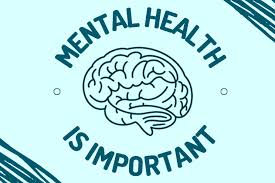
World Health Day 2024: Championing the Universal Right to Health Amid Global Challenges
Around the world, the right to health is increasingly under threat, as global crises continue to deepen and jeopardize access to essential healthcare for millions. Diseases and disasters are emerging as primary causes of death and disability, while conflicts devastate lives, leading to death, hunger, pain, and severe psychological distress. Amid these challenges, the ability to access essential health services is facing unprecedented obstacles.
The theme for this year’s World Health Day—“My Health, My Right”—is a call to champion the right of every person to live a healthy life and to have access to quality healthcare. The World Health Organization (WHO) has chosen this theme to emphasize that the right to health is not limited to medical care alone, but encompasses a broader spectrum of fundamental needs, including access to safe drinking water, clean air, adequate nutrition, quality housing, decent working conditions, and freedom from discrimination.
The burning of fossil fuels, for instance, is driving the climate crisis, making it harder for people to breathe clean air. With indoor and outdoor air pollution taking a life every five seconds, the consequences are severe and far-reaching. Similarly, conflicts around the world are leaving populations trapped in a cycle of devastation, further compounding health inequities and pushing entire communities to the brink.
Although more than 140 countries have recognized health as a human right in their constitutions, the reality is far less encouraging. The WHO Council on the Economics of Health for All highlights that many of these countries have not established legislative frameworks or policies to ensure this right translates into actual healthcare access. As a result, over 4.5 billion people—more than half of the world’s population—were unable to access essential health services in 2021, reflecting significant gaps in global healthcare systems.
World Health Day 2024 serves as a platform to address these disparities and advocate for comprehensive health services for all. The theme underscores the importance of health as more than just the absence of illness—it is a holistic state of well-being that encompasses physical, mental, and social aspects. It calls for strengthening health systems, ensuring access to preventive care and quality services, and tackling the root causes of health disparities.
The WHO’s campaign this year emphasizes several core elements of health as a human right, including equitable access to health services, protection of environmental health, provision of accurate health information and education, assurance of safe living and working conditions, and elimination of discrimination in all its forms. These priorities aim to ensure that everyone, everywhere, has an equal opportunity to achieve their highest standard of health.
Achieving universal health for all requires concerted global efforts that address the social, economic, and environmental determinants of health. WHO continues to collaborate with countries and partners to develop people-centered health policies and strengthen health systems. However, translating these goals into reality demands strong political will, adequate resources, and international cooperation.
“This World Health Day, let us renew our commitment to making health systems more inclusive, resilient, and responsive to the needs of all,” said WHO Director-General Dr. Tedros Adhanom Ghebreyesus. “Health is not a privilege for a few, but a fundamental right for everyone, everywhere.”
World Health Day 2024 serves as a poignant reminder that health is not merely a service or commodity, but a universal right that must be upheld and protected. It is a call for governments, health organizations, and communities to work together towards creating a fairer, healthier world for all people.